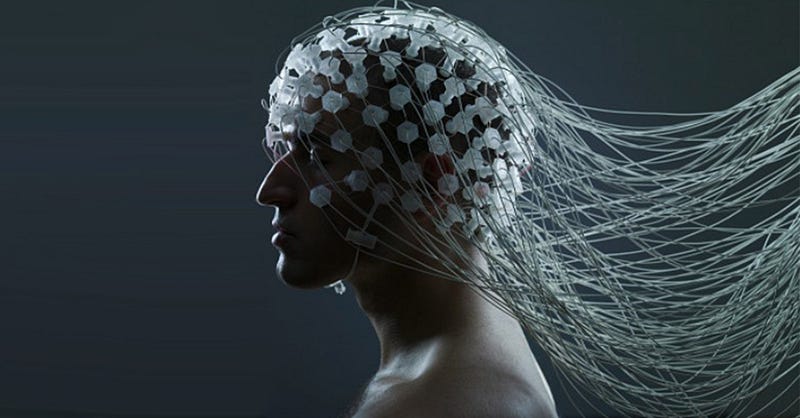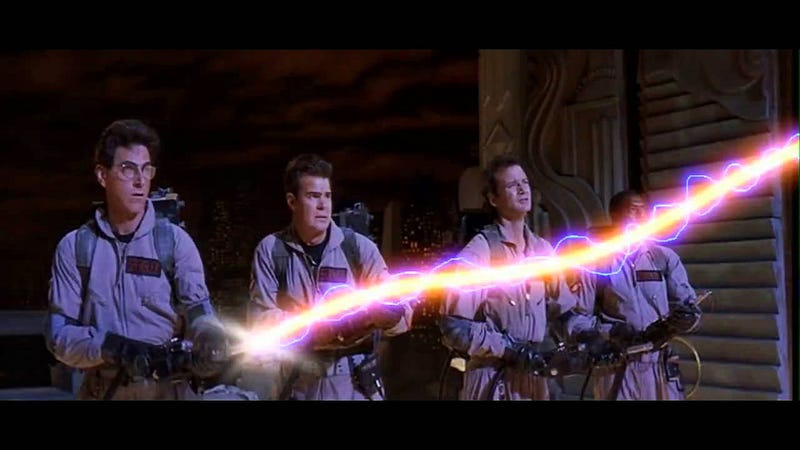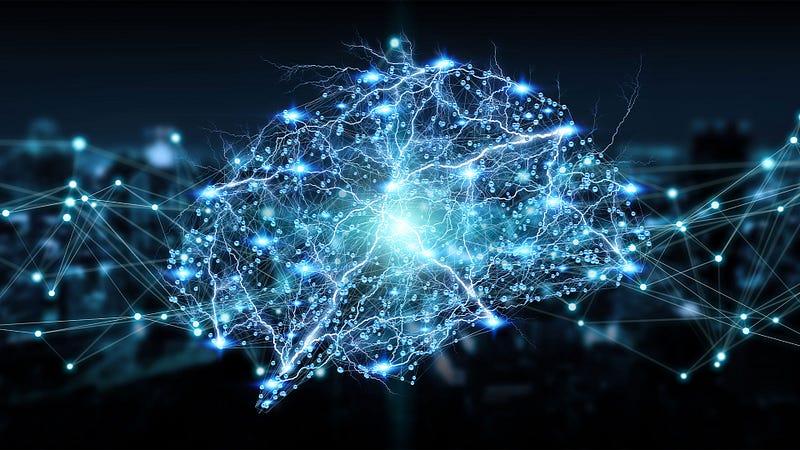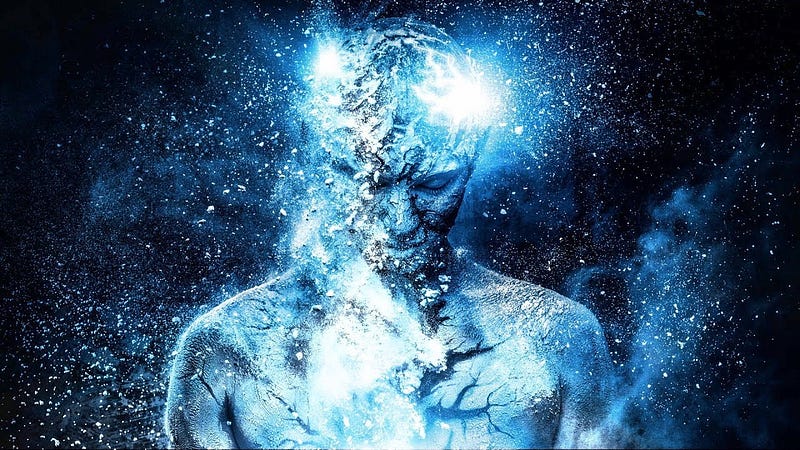The Transformation of Existence: Exploring the Soul and Beyond
Written on
In the course of human history, the concept of death and what lies beyond has captivated our species. We stand at the brink of a significant shift in our understanding of humanity, as well as how we might address the profound question of existence itself.

Many people perceive themselves as composed of a body, a mind, and a soul (or spirit), treating these elements as distinct entities. The soul, in particular, is often seen as separate from the mind and the physical universe, existing outside the confines of measurable reality.
Globally, we engage with ideas of reincarnation, out-of-body experiences, and concepts of heaven and hell, each shaped by our imaginations. We speculate about immortality, consciousness, and the essence of our being.
The multitude of expressions that define what it means to be "us" sets us apart from our tangible experiences. This sense of self often extends beyond our immediate life situations, suggesting a deeper truth waiting to be uncovered, nurtured, or harmonized with while we navigate our existence in physical forms. The timeline of our soul is perceived differently—far exceeding the span of our current lives, if not eternal. Regardless of how we measure it, the quality and nature of our essence—our soul—is frequently viewed as distinct from what can be physically quantified.
From a scientific standpoint, we are constantly in a state of cellular renewal. Our bodies undergo a form of mini reincarnation as cells die and regenerate—colon cells last mere days, while skin cells endure for weeks. Blood vessels last five days, and skeletal muscle can persist for up to 15 years before being replaced. Interestingly, some cells, such as those in the brain or the eye's lenses, seem to be exceptions, resisting replacement.
As time passes, we are transformed into a faithful reproduction of ourselves—a simulacrum. This idea is crucial for our later discussions.
If the majority of humanity believes in the soul as the core of our "immortal self," could it be conceivable that in the future, we might find ourselves inhabiting a non-human or simulated vessel?
In other words, might we evolve beyond our physical bodies and transition into a post-corporeal existence?
If the soul is neither body nor mind, how can we not consider the possibility of separating them as a theoretical outcome? Or is the soul entirely reliant on its physical host for its existence?
If this dependency exists, does it not render the concept of life after death—the interval between passing and rebirth—irrelevant? Either our souls can exist independently of a body, or they cannot.
Moreover, why would an eternal entity desire a limited consciousness as its vessel?
If we genuinely believe a sentient creator shaped us in their image, then the answer may be affirmative: we need both a body and a mind for the soul to inhabit. The reasoning behind this remains elusive, and the fate of our souls between physical existences remains unanswered, often contradicting fundamental beliefs.
For now, we find ourselves in the dark, not only distant from the mysteries of a supreme being but also unaware of our immortal essence.
Conversely, if we accept a Darwinian perspective and view "God" or "the gods" as non-existent or merely representational of natural forces, the inquiry persists:
Can we exist outside our bodies and minds—not only between deaths and rebirths but also in our current lives?
Various religions propose the idea of rebirth in different forms, such as animals or even in unexpected encounters with creatures that evoke memories of those we've lost.
A brief search reveals a plethora of films, over 150, centered on reincarnation—a testament to its prevalence in both religious and popular narratives.
Thanatology, the study of death in all its aspects, has become a significant focus of human endeavor, often at the expense of our present lives.
Returning to my initial query within our earthly context: can we escape the gradual destruction of our environment—the Earth and its resources vital for our sustenance—by relocating our souls into a less fragile host that requires no sustenance, rest, or air, merely energy from the sun or wind? Alternatively, can we somehow adapt our souls to inhabit a silicon chip or synthetic entity, rather than a cat, insect, or human infant?
Is it feasible that in the near or distant future, we might be able to identify, quantify, and even capture the essence of the soul—much like the fictional "Proton Pack" from Ghostbusters?

Why are we not probing these questions and investing in answers if a significant portion of humanity believes in the existence of a soul, situated within a broader cosmic framework than our fragile physical forms?
Self-Imposed Limits
Few, if any, of us fully realize our potential—our inner harmony, peace, and truth—in a single lifetime. Many spiritual traditions—including Buddhism, Hinduism, and animism—contend that the journey of "becoming" spans multiple lifetimes, and that a well-lived life is one dedicated to this ultimate goal.
Occasionally, individuals of profound wisdom grace our planet: Jesus, Mohammed, Buddha, and even fictional characters like Evan Almighty (thanks to Steve Carrell!). One of my favorite films is Wings of Desire, directed by Wim Wenders, which depicts angels on Earth (like Peter Falk) who silently observe humanity's quest for self-understanding.
If angels—or spirits of those who have passed—are indeed present, could we not provide them with an enhanced existence that transcends physical needs, allowing us to bypass human suffering and instead focus on celebration?
Am I being absurd?
Mind Uploading
Theoretically, we may soon achieve the capability to simulate consciousness through "mind uploading." Scanned and digitized human brains could undergo processes that enable them—along with their interactions—to experience psychological aspects akin to sentient minds.

While simulation is not equivalent to living, it begins to blur the line regarding which aspects of our identity are separate from our physical bodies and minds, versus those that can be quantified, replicated, and experienced as real life within artificial hosts.
In other words, how much of "living" is our perception of existence, compared to the beliefs of others? If we are nearing the ability to simulate consciousness in written form—known as "The Turing Test"—isn't this a discussion about the extent of our scientific advancement? It's plausible that we might soon create entities that express emotion and interact fluidly, thereby challenging our understanding of what it means to be human.
A long list of films explores these themes, including classics like the original Blade Runner.
Futurists and transhumanists—advocates of human enhancement—argue that "mind uploading" pales in comparison to life extension. Unlike simulators, they don't propose capturing a soulless essence in a machine; rather, they aim to prolong the lives of souls already confined in their current forms, thereby overcoming the limitations of their deteriorating vessels. Both our bodies and minds undergo decay as we age, so why wouldn't we pursue solutions?
Notably, Google is seeking to "solve death itself." Their venture, Calico (California Life Company), aims to harness advanced technologies to deepen our understanding of the biology governing lifespan.
Regardless of their success, they have invested $1.5 billion and enlisted some of the brightest minds in various fields to tackle this challenge.
What if they succeed? What becomes of our souls? For those with religious beliefs, if we no longer die, do we also cease to reincarnate? Is this even a concern? Or do our souls possess control over their vessels, including the choice of future rebirths? Imagine a scenario where our souls could opt for a less complex existence, such as inhabiting a raccoon or possum, allowing for a pause in their journey.
If we escape the cycle of death, do we also bypass the cycle of rebirth?
What then happens to the relationship between a soul and its vessel? How much control does a soul have over its current and future forms, and how constrained is it by the randomness of our biological, emotional, and social environments?
What if we could transcend these limitations through collaboration—pooling resources to achieve a higher state of being? Haven't we pursued this with numerous practices, including meditation, yoga, and even psychedelic experiences, all in search of glimpsing our cosmic immortality?
The End of Suffering
One of the most promising outcomes of our exploration of the soul is the potential for a merged consciousness, shared among all 8 billion individuals on the planet, paving the way for the end of conflict, ignorance, and division. Could this usher in Nirvana for everyone?
Some mathematicians and futurists speculate that the Singularity is imminent—perhaps within the next decade. Once machine intelligence surpasses human cognitive capabilities, a rapid progression toward a centralized hub for uploading human consciousness could occur. This would allow for a collective access to thoughts and experiences, merging our individual insights into a unified consciousness.
If this occurs, will the survival of individual human forms still matter? Who holds the reins, and what is the agenda?

Is human failure merely a consequence of individual minds limited by physiological, neurochemical, or experiential factors? Isn't the primary source of human fear tied to our lack of connection and understanding that we are loved and have purpose?
What if we could suddenly grasp everything and everyone intimately, as if we were not just family, but intrinsically unified—fully aware of our fears, dreams, and innate goodness, recognizing that at our core, we are all similar?
In such a reality, wouldn't every moral failing—racism, sexism, violence—feel profoundly personal if we shared a consciousness?
In essence, doesn't collective intelligence signal the end of individuality and the emergence of a unified mind?
I believe this is a plausible future, as it symbolizes the conclusion of the concept of "the other."
Our collective consciousness represents the dissolution of "the other," which has led humanity to collective suffering since we transitioned from the wilds to settled communities.
At the very least, it is how many envision an ideal existence—filled with collective wellbeing and devoid of suffering. An interconnected consciousness of eight billion would signify instant understanding. Buddhists refer to this as enlightenment, while Hindus speak of samadhi, a state attainable by a dedicated individual over a lifetime. What transpires when we unify all of humanity?
I envision it as a cosmic "KABOOM!"
If Calico succeeds in addressing the issue of death, we will have ample time to explore the merging of our consciousness.
The End of Death?
Regarding the potential resolution of death, I believe we won't need to wait long. This century appears poised to uncover numerous mysteries. Whether machine intelligence can integrate us, or if Calico can delay individual decay for those who can afford it, we might gain another 10 to 20 years of life.
Ultimately, death represents the deterioration of individual systems. Few dispute this premise. A heart may fail, cells may mutate, or organs may cease functioning. Most life-extension initiatives treat our bodies similarly to machines, aiming to repair or replace components to prolong life. This might involve organ transplants, gene therapy, or even cryonics—preserving heads in liquid nitrogen until we determine their future.
Despite these efforts, society's fixation on delaying death often conflicts with the religious beliefs many hold—faith in the eternal nature of the soul and the promise of infinite second chances.
Whether one subscribes to the notion of infinite opportunities or a singular life to conquer death, there's no need for panic. We have options.

Final Thoughts
It is reasonable to assert that no one on Earth truly knows what we are. This encompasses measurable distinctions, such as whether our minds and bodies are separate entities, given that both consist of matter and cannot function independently. Thus, the concept of a "mind-body" connection may be a more fitting framework for understanding our tangible interactions.
The nature of our souls remains elusive. Yet, this has not stopped humanity's obsession with the subject. Every culture, religion, and scientific inquiry grapples with the essence of life and its potential finitude.
The common conclusion—excluding nihilists, atheists, and skeptics—is that there exists something beyond the physical realm that transcends death.
If true, this revelation is monumental, for death, like birth, is the only certainty for every human. Thus, resolving this dilemma holds immense significance.
Imagine uniting our collective intelligence—our shared consciousness—to confront this profound question: What transpires after we die? A networked, multi-billion human mind, or an equally powerful artificial intelligence, could potentially illuminate this mystery.
Two possible outcomes emerge from harnessing such a powerful resource. One is the end of death—be it physical or conscious—which would inherently render discussions about souls irrelevant. If we do not perish, rebirth becomes moot. The alternative path leads to enlightenment, where we gain a definitive comprehension of our existence within the universe, our role on Earth, and our own mind-body connection. This could herald the cessation of suffering, where every individual understands their connection to others and collaborates—no longer driven by fear—to create a harmonious existence on Earth, or even between lives.
Both scenarios—the end of death and the end of suffering—would represent unprecedented advancements for humanity.
Ultimately, it all hinges on the essence of being human, the existence of the soul, and the realization that technology, despite our current trepidation, could be the key to fulfilling one of humanity's deepest desires: inner peace.